LONDON – Detroit’s Nickolas Ashford and Valerie Simpson had a ballroom full of songwriters, musicians and music industry executives on their feet tonight at the UK ASCAP awards performing several of their hits including “Reach Out and Touch,” “Ain’t No Mountain High Enough,” “Let’s Go Get Stoned” and “Ain’t Nothing Like the Real Thing.”
After their performance, relaxing again in the banquet setting, Ashford reminisced about playing in Windsor back in the time I lived there — “We were neighbours!” — while Simpson was happy to claim that she still owned chairs she bought at downtown Detroit’s famous Hudson’s store when it closed in 1983. My photo shows them with record producer George Martin and Lady Martin.
Two British musicians backed the duo onstage, keyboard man Jason Thompson and percussionist Jamiel Blake, who accompany the stars when they play in the U.K. The crowd rightly gave them their own round of applause.
English pop singer Dido, whose third album, “Safe Trip Home,” will be released in the U.S. on Nov. 18, was named songwriter of the year for her songs “Thank You,” from her 2001 debut album, and “White Flag,” from her second in 2003.
Oscar-winning composer Dario Marianelli, whose upcoming films include Joe Wright’s “The Soloist,” received a film prize for his Academy Award-winning score to “Atonement” and for “The Brave One.”
“Put Your Records On,” written by John Beck and Steve Chrisanthou and recorded by Corinne Bailey Rae, won song of the year and EMI Music Publishing was named publisher of the year.
Other awards went to Adrian Johnston for “Becoming Jane”, Nick Hooper for “Harry Potter and the Order of the Phoenix,” Howard Goodall for “Mr. Bean’s Holiday” and Jonny Greenwood for “There Will Be Blood.”
Television prizes were handed to Cathy Dennis, Julian Gingell and Barry Stone for “American Idol,” Elizabeth Fraser for “House,” Dan McGrath and Josh Philips for “Dancing With the Stars,” and Keith and Matthew Strachan for “Who Wants to be a Millionaire?”
Special awards also were presented to the Kooks and Kate Nash during a banquet at the Grosvenor House Hotel. The awards reflect U.S. airplay by music created by members of Britain’s Performing Rights Society licensed by ASCAP.

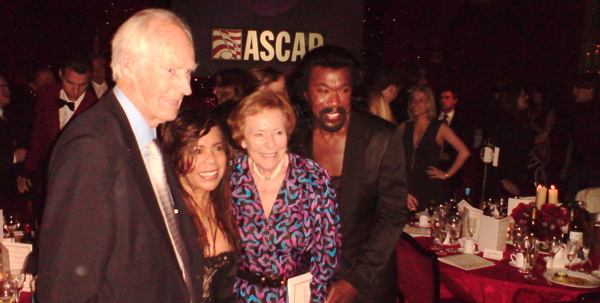
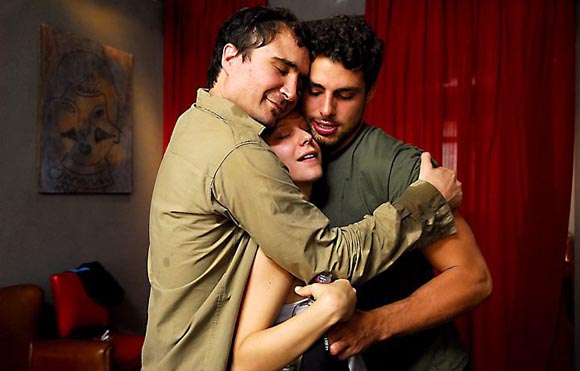


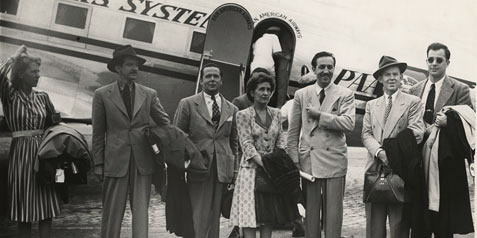




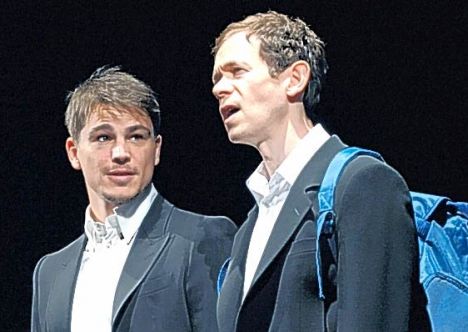
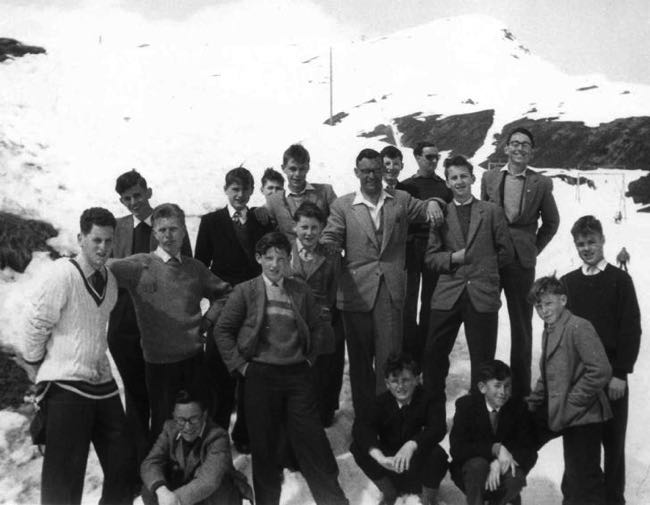
Paul Newman dies
By Ray Bennett
LONDON – One of the frequent disappointments in meeting film stars is realizing how much their charisma and star power depend on the power of the movie screen. In my experience, only a few stars retain that aura in real life – Sean Connery, Jack Nicholson, George Clooney and Omar Sharif among them – and, of course, Paul Newman, who died on Sept. 26. He was 83.
No matter how big and crowded, you always knew they were in the room.
I met Newman in New York City in 1976 when he was promoting the Robert Altman film “Buffalo Bill and the Indians, or Sitting Bull’s History Lesson” (pictured). Not ranked among the director’s top films, it remains eminently watchable for several reasons, not least Altman’s anarchic screenplay, co-written with Alan Rudolph, with its rowdy depiction of politics and show business.
Newman gives a vigorously crafty performance supported by a fine cast including Burt Lancaster, Kevin McCarthy, Harvey Keitel and Geraldine Chaplin. Tony Masters, who shared an art direction BAFTA and an Oscar nomination for “2001: A Space Odyssey,” did a wonderfully colorful job on production design. It was captured with great invention by cinematographer Paul Lohman (Emmy winner for the 1976 TV miniseries “Eleanor and Franklin”), who also shot Altman’s gambling gem “California Split” and one of his masterpieces, “Nashville.”
The press conference for “Buffalo Bill” was dominated by an hilarious performance by Pat McCormick, the 6-foot-8 thickly mustached “Tonight Show” writer and frequent Johnny Carson guest in character as President Grover Cleveland, his role in the film.
But what I recall most clearly is that Altman and Newman agreed on what they most enjoyed about making films. They both said that after writing the screenplay and spending weeks working with cast and crew on everything needed to shoot the film, they wished they could stop right there and not make the picture.
Thank goodness they didn’t do that so there’s a trove of great Newman films to treasure. He deserved an Academy Award, of course, but as so often happens, it was for the wrong performance (“The Color of Money”). I would have given it to him for at least one from “The Verdict” over Ben Kingsley for “Gandhi” or “Cool Hand Luke” over Rod Steiger for “In the Heat of the Night”.
Here’s the New York Times appreciation